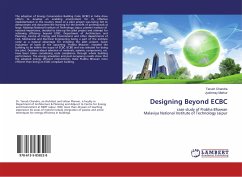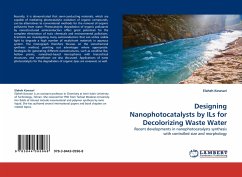The adoption of Energy Conservation Building Code (ECBC) in India drew efforts to develop an enabling environment for its effective implementation in the country. Need of a pilot project was being felt to demonstrate and document the learning for the benefit of professionals at large. Malaviya National Institute of Technology Jaipur, premier institute of national importance, decided to take-up the pilot project and attempt for achieving efficiency beyond ECBC. Department of Architecture and Planning, Centre of Energy and Environment and other departments of Civil, Mechanical and Electrical Engineering being a part of the institute came as a natural advantage for initiating the pilot project. Quick evaluation of loads of the upcoming ¿Prabha Bhawan', revealed the building to be within the scope of ECBC /ECBD and was selected for doing the pilot. Decisions about selection of materials, systems, components, etc. have been taken considering code compliance through whole building performance. The energy simulation and post occupancy results show that the adopted energy efficient interventions make Prabha Bhawan more efficient than being an ECBC compliant building.







